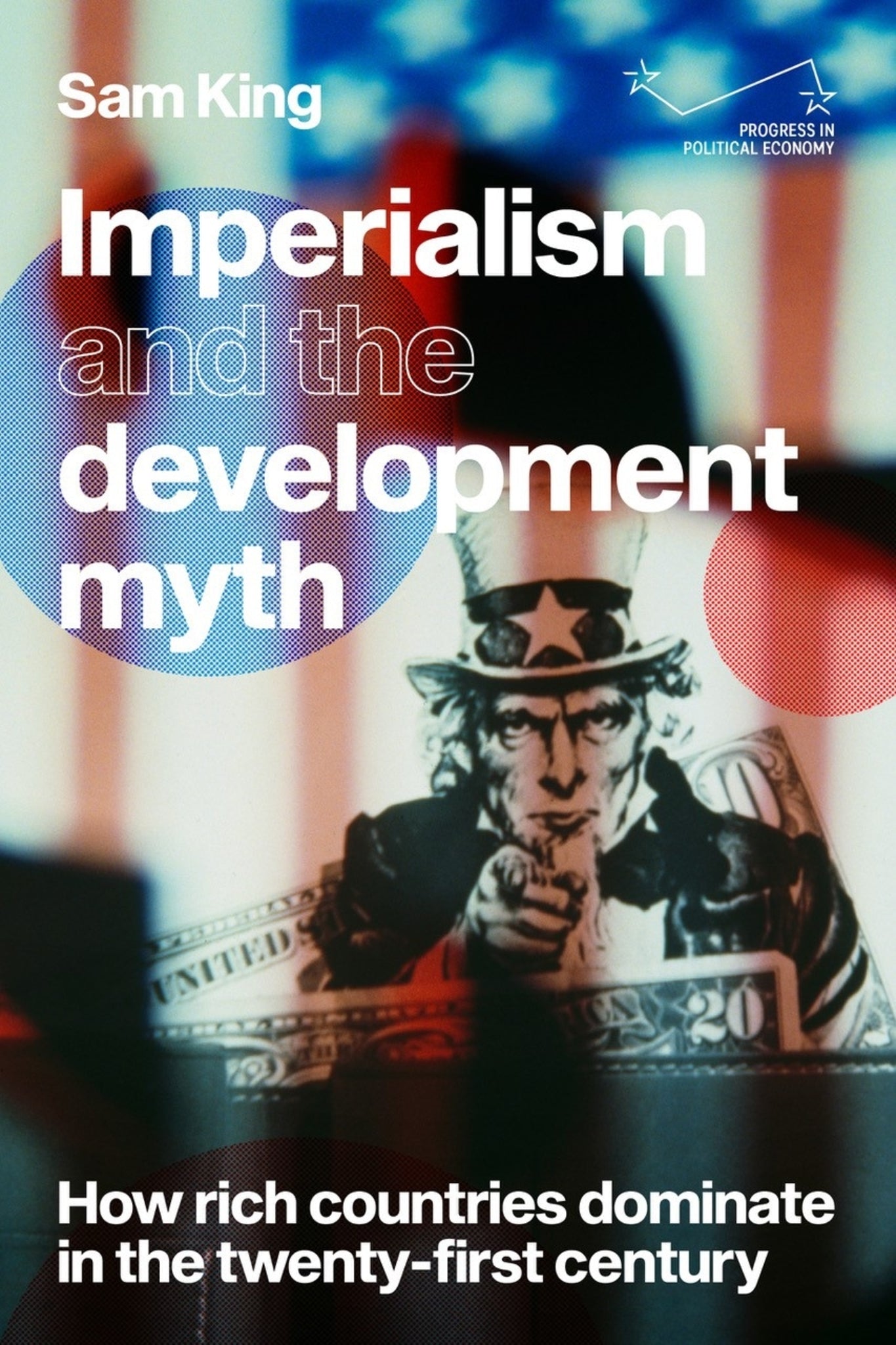We're sorry. An error has occurred
Please cancel or retry.
Imperialism and the development myth

Some error occured while loading the Quick View. Please close the Quick View and try reloading the page.
Couldn't load pickup availability
- Format:
-
21 March 2023


POLITICAL SCIENCE / Political Economy, Political economy, HISTORY / Asia / China, SOCIAL SCIENCE / Developing & Emerging Countries, POLITICAL SCIENCE / Imperialism, Development economics and emerging economies

'Sam King offers an important intervention to critical/radical/Marxist literature on the political economy of (under)development in the Third World/Global South in the neoliberal era by critically and comprehensively engaging with the notion of imperialism.'
Gonenc Uysal, Osmaniye Korkut Ata University, Capital & Class (Volume 46, Issue 2)
Foreword – Michael Roberts
Introduction
Part I: Two worlds
1 Income polarisation in the neoliberal period
Part II: Contemporary Marxist analysis
2 Decline of Marxist analysis of imperialism
3 Contemporary Marxist response to world polarisation
4 The idea of China as a rising threat
Part III: Lenin’s theory of imperialism and its contemporary application
5 What Lenin’s book does not say
6 Is imperialism the 'highest stage of capitalism'?
7 Lenin’s monopoly capitalist competition
8 Monopoly and the Marx’s labour theory of value
Part IV: Monopoly and non-monopoly capital: the economic core of imperialism
9 Neoliberal polarisation of capital
10 Polarised specialisation of nations
11 Non-monopoly Third World capital
12 Neoliberal globalisation in historical context
13 The industrialisation of everything
14 Growing state dominance
15 Stranglehold: the reproduction of highest labour power
Part V: Super-exploitation of China and why catch-up is not possible
16 China: Third World capitalism par excellence
17 The new Imperialist cold war against China
18 Trade war and China’s latest attempts at upgrading
Conclusion
Bibliography
Index



